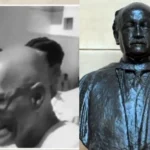Mehbooba Mufti Slams NC-Led J&K Govt Over Waqf Bill, Alleges Surrender to BJP’s “Anti-Muslim Agenda”
Srinagar, April 7: People’s Democratic Party (PDP) President Mehbooba Mufti on Monday launched a sharp attack on the National Conference-led Jammu and Kashmir government, accusing it of capitulating to the BJP’s “anti-Muslim agenda” after the Assembly Speaker rejected a motion seeking discussion on the Waqf (Amendment) Bill, 2025.
Describing the Speaker’s decision as “profoundly disappointing,” Mufti alleged that the government was trying to appease both sides while neglecting the interests of the Muslim-majority region.
“Despite securing a strong mandate, the government appears to have completely yielded to the BJP’s anti-Muslim agenda, cynically attempting to appease both sides,” she posted on X.
She further urged the National Conference (NC) to take cues from the Tamil Nadu government, which she said had firmly opposed the Waqf Bill.
“In J&K, the only Muslim-majority region, it’s alarming that a supposedly people-centric government lacks the courage even to debate this critical issue,” she added.
The criticism came after Assembly Speaker Abdul Rahim Rather rejected adjournment motions filed by opposition MLAs, including NC’s Tanvir Sadiq, who sought a debate on the recently passed Waqf Amendment Bill. Speaker Rather maintained that the matter was sub judice and could not be discussed under an adjournment motion.
“Since this issue is in the Supreme Court and I have received a copy of the petition, the rule clearly says we cannot take it up under an adjournment motion,” Speaker Rather said.
The Assembly descended into chaos following the decision, with NC MLAs storming the well of the House and raising slogans: “Ban karo ban karo, Waqf bill ko ban karo.” Marshalls were called in to restrain the protesting members. The PDP, though not allied with the NC, also joined the protest, accusing the ruling party of playing a “fixed match” with the BJP.
PDP leader Waheed Para also launched a scathing attack on the NC-led government, alleging it was facilitating the BJP’s policies in Jammu and Kashmir.
“When Article 370 and CAA were being challenged in court, we brought resolutions, as did many states. Today, we wanted to register our protest against the Waqf Bill, but the Speaker rejected our motion. This is a mix-match—opposing BJP on the surface while enabling their agenda on the ground,” Para said.
He added that the Waqf issue was not just about property but deeply tied to religious faith, demanding sensitive and inclusive handling.
The Waqf (Amendment) Bill, 2025, received presidential assent on April 5 after being passed in both Houses of Parliament. It aims to improve the governance of waqf properties, streamline registration and survey processes, enhance transparency, and incorporate modern technology in Waqf board operations.
Passed in the Rajya Sabha with 128 votes in favour and 95 against, and earlier in the Lok Sabha with 288 members supporting it and 232 opposing, the bill replaces outdated legislation including the Mussalman Wakf Act of 1923. It amends the original Waqf Act of 1995, following recommendations by a Joint Parliamentary Committee.
While the government claims the bill aims to ensure better management of waqf assets, critics argue that it centralizes control and undermines community rights.









